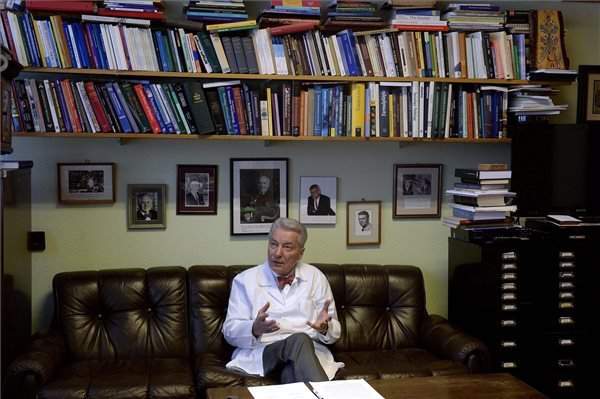Change language:
Atlantic Council head: 2015 Europe’s hardest year in decades

Budapest (MTI) – The past year was Europe’s hardest one in decades, and the European Union has failed to listen to its citizens concerning the handling of the migrant crisis and the threat of terrorism, the president of the Hungarian Atlantic Council said in an interview to MTI.
Szilveszter E Vizi said that in 2015 the EU and Europe as a whole found itself facing challenges that its society was not prepared for. He said the challenges Europe faces today can all be traced back to the north-south divide.
The gap between rich and poor countries has continued to widen over the past few years while at the same time the Arab Spring brought about changes in the Middle East and North Africa that led to the rise of Islamic extremist groups, he said. Countries like Libya, Egypt and Syria, which were “stable dictatorships” before the uprisings, were destabilised by the Arab Spring, and people in those countries have been forced to flee terrorism, Vizi said. This led to a mass migration wave into Europe which the continent is incapable of managing either from a social, economic or cultural standpoint, he said. Vizi added that the EU has long “given up” its Judeo-Christian roots, which are not even mentioned in the bloc’s founding documents.
Vizi expressed the conviction that Europe can overcome its problems but said it was “surprising” how difficult it has been for the EU to manage the migrant crisis.

He said Hungary, like other EU member states, was also caught off guard by the massive influx of migrants, but the government, the police and the army were all quick to respond. Germany, Austria and Sweden, however, are still struggling to stem the migrant flow. Vizi noted that US Ambassador Colleen Bell has also recently praised Hungarian policymakers and the army’s swift response to the crisis.
Concerning Russia, Vizi said it has become clear to the US that it needs the help of Russia to stabilise the Middle East and North Africa, which he said will require the two countries to strengthen ties.
Vizi said Hungary plays a key role in NATO’s military and political tasks. He noted that as a civil organisation established to bring society, the military and the government closer together, the Atlantic Council is in constant contact with the councils of other NATO member states, NATO civil organisations as well as the ambassadors and defence attaches of NATO member states to Hungary.
The Hungarian Atlantic Council supports the government’s push to expand the role of the military in protecting the country, Vizi said.
Photo: MTI
Source: http://mtva.hu/hu/hungary-matters







